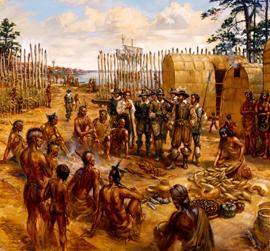Federal Laws On Gambling
Browse US Legal Forms’ largest database of 85k state and industry-specific legal forms.
- What Are The Laws In Relation To Gambling
- Federal Laws On Gambling
- Federal Gaming Law
- Online Gambling Law
- Federal Regulations On Gambling
What Are The Laws In Relation To Gambling
The Federal government has designated some forms of gambling as prohibited within the US and has created laws that are non-negotiable in the regulation of such prohibited activities. On this subject, the Federal government may outlaw any form of gambling and states must abide by their law as Federal regulation will always trump state laws. That’s because there is no federal law banning gambling throughout the country. That said, the full story is a lot more complicated. The US does have specific laws, such as the Federal Wire Act. So here is a breakdown of the law on online gambling. Legal Forms of Gambling. There is no federal law against placing a wager online. So, you can legally place a bet online. However, a wager must not be placed on a site located in the United States. There is a small chance players might run afoul of state law, but there is little chance of. Gambling is regulated by both federal laws and state laws. Some of the federal laws that pertain to gambling include the Wire Act of 1961 and the Illegal Gambling Business Act of 1970. LegalMatch provides online legal insights in their law library to help you better understand your case.
A person engages in gambling if he stakes or risks something of value upon the outcome of a contest of chance or a future contingent event not under his control or influence, upon an agreement or understanding that he or someone else will receive something of value in the event of a certain outcome. Gambling does not include bona fide business transactions valid under the law of contracts, such as the purchase or sale at a future date of securities or commodities, contracts of indemnity or guaranty and life, health or accident insurance.
Federal law defines illegal gambling activity as:
- Is a violation of the law of the state in which it is conducted; and
- (Involves five or more persons who conduct, finance, manage, supervise, direct or own all or part of such business; and
- Has been or remains in substantially continuous operation for a period in excess of thirty days, or has a gross revenue of $2,000 in any single day.

Federal Laws On Gambling


State laws on illegal gambling activity vary by state and often include offenses for possessing illegal gambling devices and promoting illegal gambling activity. An illegal gambling device is any device, machine, paraphernalia or equipment that is normally used or usable in the playing phases of any gambling activity, whether that activity consists of gambling between persons or gambling by a person involving the playing of a machine. However, lottery tickets, policy slips and other items used in the playing phases of lottery and policy schemes are not gambling devices within this definition.

Gambling is accepting, recording, or registering bets, or carrying on a policy game or any other lottery, or playing any game of chance, for money or other thing of value. Title 18, U.S.C., Sec. 1955, makes it a federal crime or offense for anyone to conduct an 'illegal gambling business.'
An 'illegal gambling business' is defined to be a gambling business which:
- Is a violation of the law of the state in which it is conducted; and
- Involves five or more persons who conduct, finance, manage, supervise, direct or own all or part of such business; and
- Has been or remains in substantially continuous operation for a period in excess of thirty days, or has a gross revenue of $2,000 in any single day.
State laws also govern gambling. Some states prohibit public wagers or betting by minors, while others allow wagering up to a certain amount. In some states parimutuel betting on horse races at the tracks is legal and most states operate or participate in daily and weekly lotteries. Some states, however, particularly those along the Mississippi River, restrict casino gambling to riverboats. Since passage of the federal Indian Gaming Regulatory Act of 1988, states have been required to permit on reservations any type of gambling that is permitted off-reservation. Gambling is a significant source of revenue in their respective states and the subject of controversy due to the social ills which have been argued to be connected to it, such as organized crime and gambling addiction.
Federal Gaming Law

Online Gambling Law
Relevant legal forms include:
Jury Instruction - Illegal Gambling Business (Bookmaking)
Jury Instruction - Transmission Of Wagering Information
Jury Instruction - Interstate Transportation Of Wagering Paraphernalia (Bookmaking)
Federal Regulations On Gambling
Legal Definition list
- Gambling